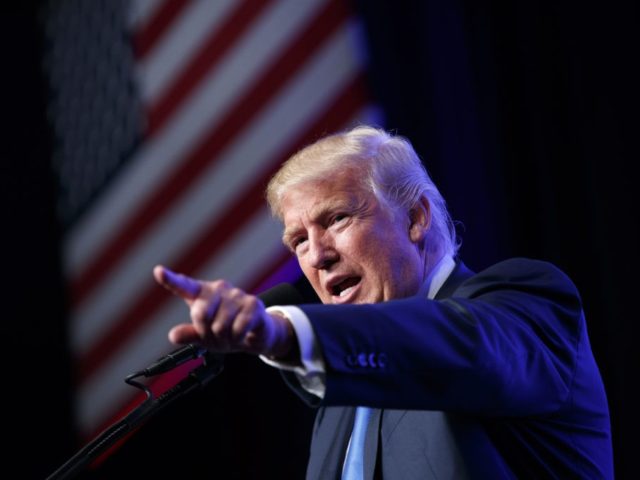Speaking at a rally in Miami, Florida, Republican presidential nominee Donald Trump vowed to reverse the myriad concessions to the Cuban communist regime made under President Barack Obama and stand “with the oppressed people of Venezuela” in their struggle to rid their country of socialism.
“The President’s one-sided deal for Cuba benefits only the Castro Regime,” Trump told the audience, referring to a shift in diplomatic strategy announced in December 2014 which has resulted in the United States allowing its businesses to invest millions into the communist dictatorship of Raúl Castro. Trump expressed optimism in reversing the path that Cuba has been on since the “normalization” process, which has seen a record number of politically-motivated arrests and prompted thousands of Cuban refugees to risk the journey to Florida. “All of the concessions that Barack Obama has granted the Castro Regime were done through executive order, which means the next President can reverse them,” Trump noted, “and that is what I will do, unless the Castro Regime meets our demands.”
“Those demands will include religious and political freedom for the Cuban people,” he concluded.
Trump also addressed the dire situation in Venezuela, where 90 percent of the population is unable to secure three meals a day for their families. “Venezuela has been run into the ground by socialists,” Trump asserted. “The next President of the United States must stand in solidarity with all people oppressed in our hemisphere, and I will stand with the oppressed people of Venezuela yearning to be free.”
Venezuela has been ruled by it socialist party for 17 years. Despite boasting the world’s largest oil reserves, it is an impoverished nation, with an estimated 700 percent inflation on its currency and nearly daily violent lootings of supermarkets and food supply trucks taking place. President Nicolás Maduro has rarely addressed the impending famine, and when he did most recently, he made it the punchline of a lewd joke. President Obama signed an executive order labeling Venezuela a national security threat to the United States.
Trump addressed these issues in the national population centers for both Venezuelan– and Cuban-Americans, south Florida, though large pockets of both populations exist in the northeast, as well. Both Venezuelan– and Cuban-American populations are made up largely of refugees or their American-born children, and have higher education attainment levels than U.S. Hispanics on average. Venezuelans are, on average, higher educated than the average U.S. citizen regardless of origin.
Trump’s stance on Cuba has raised concerns among Cuban-American voters, who tend to vote Republican significantly more often than other Latino populations. Trump initially described President Obama’s move to issue major economic concessions to the Castro regime in exchange for no human rights benefits for those oppressed on the island as “fine.”
“The concept of opening with Cuba — 50 years is enough — the concept of opening with Cuba is fine. I think we should have made a stronger deal,” Trump said in September 2015.
A year later, with political arrests skyrocketing and seemingly every new business venture being followed by a new disturbing video of attacks on dissidents, Trump appears to be returning to his original stance on the Castro regime: that it is a “no-brainer” to support human rights against a communist tyrant.
“I’d rather lose those millions than lose my self-respect,” Trump wrote in a 1999 Miami Herald column, explaining his decision not to take on any projects in Cuba. Trump admits that investors had approached him on the potential of building a luxury hotel in Havana. “I would rather take a financial hit than become a financial backer of one of the world’s most-brutal dictators, a man who was once willing to aid in the destruction of my country,” he writes.

COMMENTS
Please let us know if you're having issues with commenting.